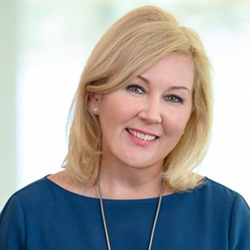Family offices must accelerate their efforts to adapt and transform their strategy and operations to address disruptions brought on by rapid global economic, social, regulatory, geopolitical and technological change.
So says the new EY Single Family Office Study, which examines the views of more than 250 single family offices (SFOs) in 12 countries.
It also explores the challenges and opportunities SFOs are prioritising in response to unprecedented changes to wealth and regulation; digital transformation; risk and reputation; and strategy and governance.
Value and purpose
A hot topic among many families and their SFOs is the expanding definition of value and purpose beyond traditional performance indicators, to encompass environmental, social and governance (ESG) criteria, and the impacts on human capital, communities, customers and stakeholders.
Some 83% of respondents believe that tracking non-financial metrics does matter, yet only 30% of SFO respondents undertake any significant measurement of performance beyond traditional financial measures.
The survey shows that SFOs are facing increasing pressure to improve performance beyond traditional financial measures – 35% of respondents cite pressure from consumers, 34% point to the growing influence of Gen Z, 32% highlight action taken by competitors and 28% say they have been spurred on by the emergence of new regulation on non-financial and climate disclosure.
The study also highlights that expanding beyond traditional financial measures brings benefits. Some 58% of SFO respondents who monitor non-financial metrics also perform above their expectations, a much higher proportion than those who do not measure non-financial metrics.
Overall, SFO respondents are taking action to pursue more diverse strategies and robust governance frameworks to help ensure their ambitions are being met.
In the area of social responsibility, 44% of SFO respondents say they actively exclude investments that clash with their ethics and values. The same number of respondents plan to make social or environmental investments over the next 12 months.
Ready to transform
The study shows that SFOs are concerned about a number of regulatory issues – 53% are worried about increasing requirements for global transparency and information exchange, while 48% say the increasing complexity of cross-border tax compliance weighs on them.
Meanwhile, 46% note concerns around increased regulatory uncertainty in the wake of the Covid-19 pandemic.
In particular, with many family members travelling regularly across borders, 72% of SFO respondents highlight concerns around the potential tax implications of remote working.
With jurisdictions around the world increasingly using tax policy and transparency initiatives to tackle broader economic and social policy issues, the study examines the extent to which SFOs are ready to transform.
It reveals that 64% of respondents are not confident their tax operations are high performing, pointing to issues with processes, people, technology, cost management and risk monitoring.
Action on cyber security
Examining SFOs’ approach to digitalisation and security, the study reveals that 74% of respondents have experienced a cyber breach in recent years, yet 72% do not have a cyber incident plan and 61% do not have processes in place to detect IT breaches.
Looking ahead, 81% of respondents plan to take action, indicating that they will invest in three or more digital technologies over the next two years.
Questioned about broader risk management, only 49% of SFO respondents say they are confident that they have the processes in place required to identify risks on the horizon, while 31% acknowledge that decisions about risks facing their organisations are not taken at the highest levels.
 Kate Barton (pictured), EY Global Vice Chair – Tax, said: “The global tax landscape is transforming almost beyond recognition. Governments around the world are looking for new sources of revenue in the wake of the pandemic and other economic pressures.
Kate Barton (pictured), EY Global Vice Chair – Tax, said: “The global tax landscape is transforming almost beyond recognition. Governments around the world are looking for new sources of revenue in the wake of the pandemic and other economic pressures.
"Beyond the huge implications emerging from global tax reform, SFOs must also watch tax authorities’ increasing moves toward digitalisation, tax sustainability issues and the tax consequences of remote working.
"By their own admission, SFOs are not running their tax operations as efficiently as they might. They know there’s more they can do to improve their technology and processes, and much more beyond.
"Added to that, growing requirements for transparency can be tough for SFOs that are also keen to protect privacy. But it is crucial that they find a way to adapt in order to meet their obligations and improve the way they operate.”
• To view the EY Single Family Office Study click here